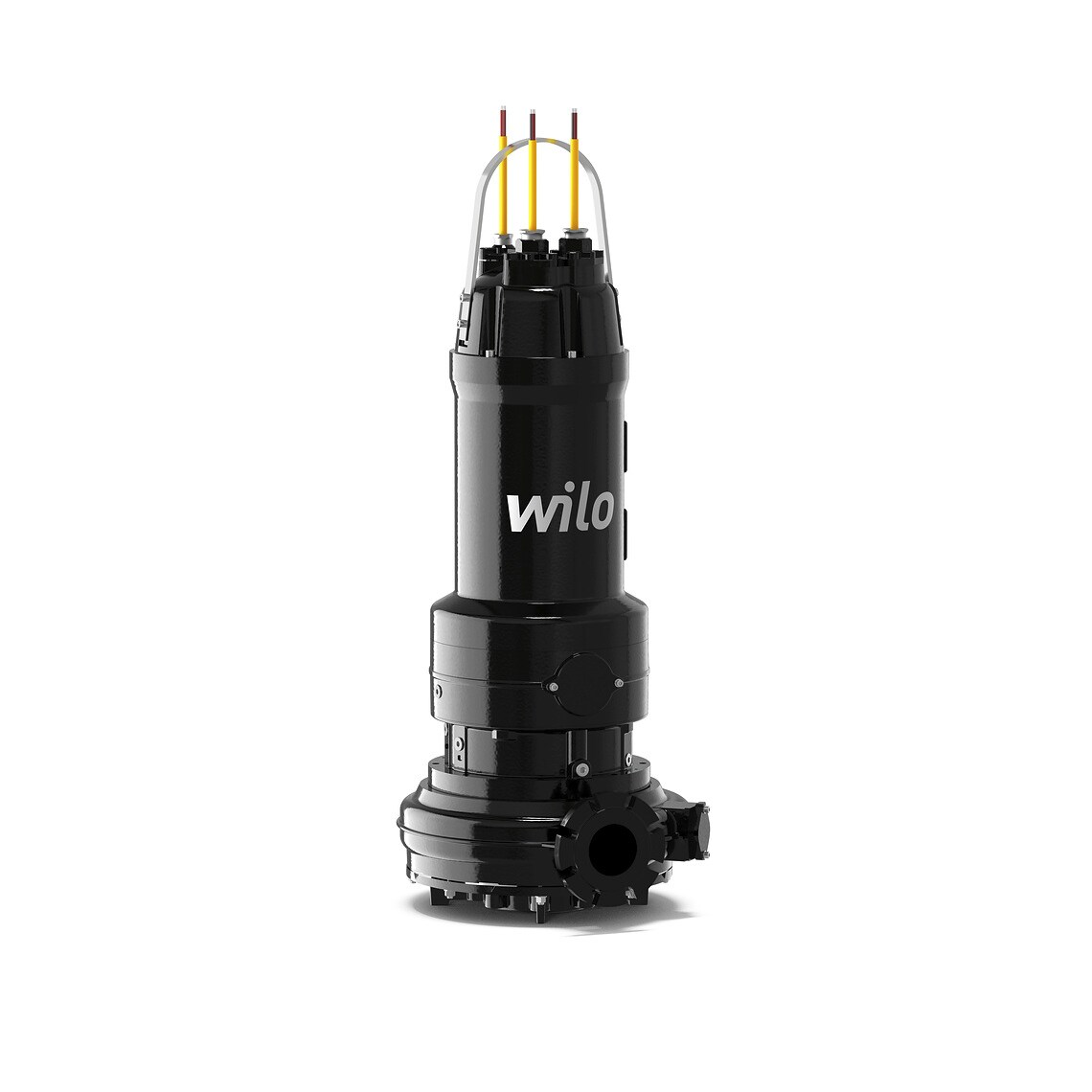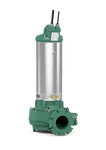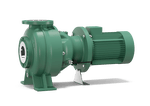Sewage pumps with protection against corrosion and abrasion
Sewage pumps or wastewater pumps and faecal pumps are indispensable when it comes to transporting sewage safely and effectively through a pipe system. However, not every sewage pump is suitable for all types of pumped fluid. In particular, abrasive substances such as sand, gravel or other solids as well as seawater and brackish water can quickly lead to wear and failures.
What protects sewage pumps from corrosion and abrasion?
The Ceram coating from Wilo is an innovative solution for optimising sewage pumps for abrasive fluid and increasing their operational reliability. The coating consists of a special combination of materials and is applied to all housing and components that come into contact with the difficult wastewater. This coating provides a high level of wear protection and ensures that the pump functions reliably for a long time, even when pumping abrasive and aggressive fluid.
What are the advantages of the Wilo Ceram coating for sewage pumps?
The unique 2K coating based on a polymer/aluminium oxide composite material offers the best possible protection against aggressive fluids compared to other coatings. The increased resistance to corrosion and abrasion effectively prevents wear and chemical corrosion, thus ensuring optimum functionality and performance at all times. Wilo Ceram significantly increases the service life of sewage pumps.
Ceram-coated pumps: the benefit for you
- Excellent wet adhesion allows the product to be resistant to corrosion
- High aluminium oxide content allows the product to be resistant to abrasion
- Reliable use even in seawater and brackish water as well as in industrial applications
- Can be freely combined with individual Ceram versions for special fluid
Our series with optional Ceram coatings
FAQ – Frequently asked questions
How does abrasion occur in sewage pumps?
Pumps that transport fluid containing solids are susceptible to abrasion. This is wear as a result of solids in the boundary layers of a material causing scoring and micro-chipping. The effects of abrasion depend on various factors, such as the size and sharpness of the solids, their concentration, and the ratio of hardness and density. The Taber abrasion test is a mechanical test method used to determine the abrasion resistance of various materials. Abrasion leads to a loss of material that can affect not only the service life of sewage pumps, but also that of other plant components that come into contact with the pumped fluid. Wear-reducing measures, such as limiting the solids concentration and flow velocity in centrifugal pumps, the use of wear-resistant and hard materials or speed control on the pump, can slow down material loss due to abrasive wear. This is why it is important to pay attention to the specific requirements of pumped fluid when selecting pump components and materials and to take appropriate measures to extend the service life of pumps and system components and increase operational reliability.
How does corrosion occur in sewage pumps?
Corrosion in sewage pumps is the result of a chemical reaction of pump components caused by aggressive fluids such as saline water or aggressive chemicals that may be present in the sewage. This can gradually degrade and destroy pump components, which can ultimately lead to sewage pump failures. Corrosion is a problem that impacts the effectiveness and operational reliability of sewage pumps. To avoid this problem, pump components should be made of corrosion-resistant materials or resistant coatings.
Why are sewage pumps for specific pumping fluids worthwhile for you?
Using sewage pumps, submersible pumps and faecal pumps with Ceram coatings provides you with greater operational reliability and a longer service life for your pumps. At the same time, you can reduce downtimes and repair costs. The Ceram coating from Wilo is an innovation in the world of sewage technology and an important contribution to the efficiency and sustainability of wastewater systems.



